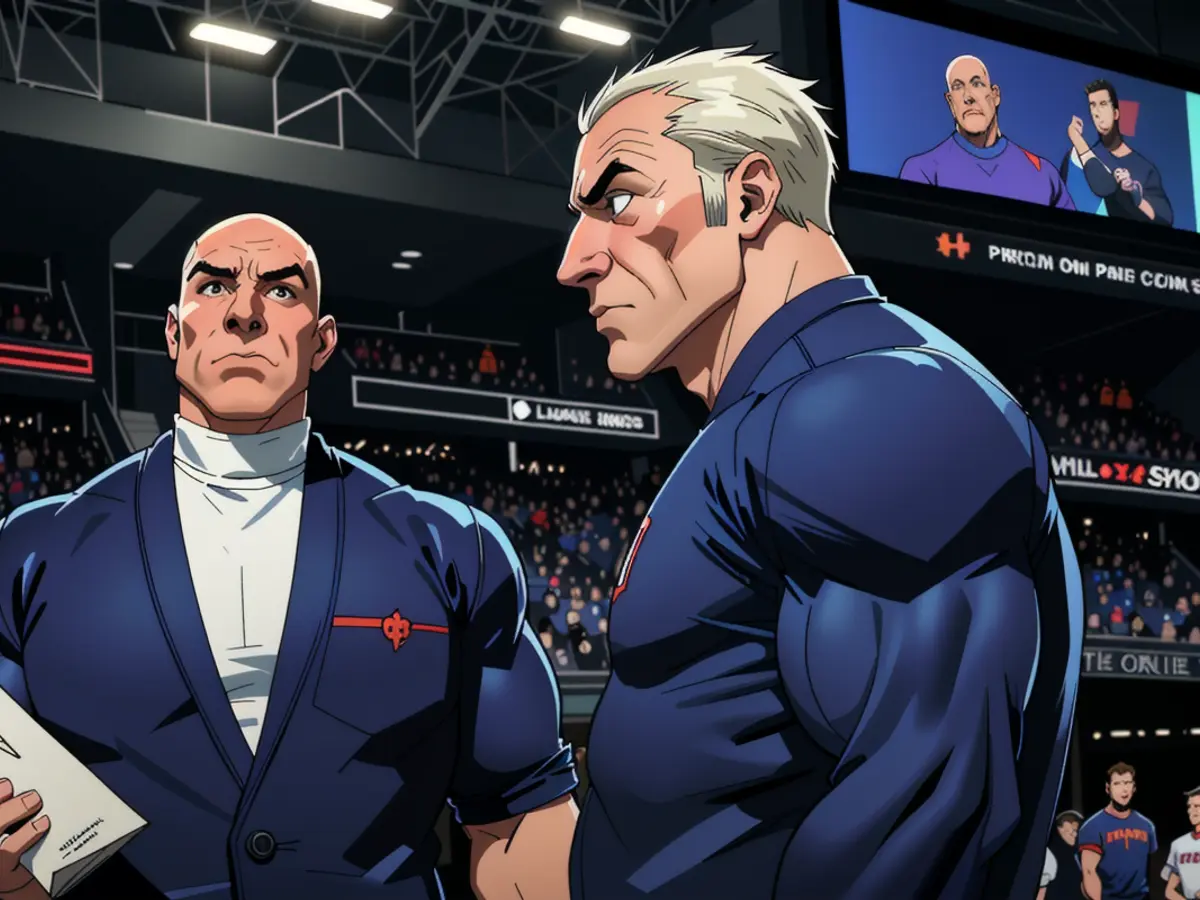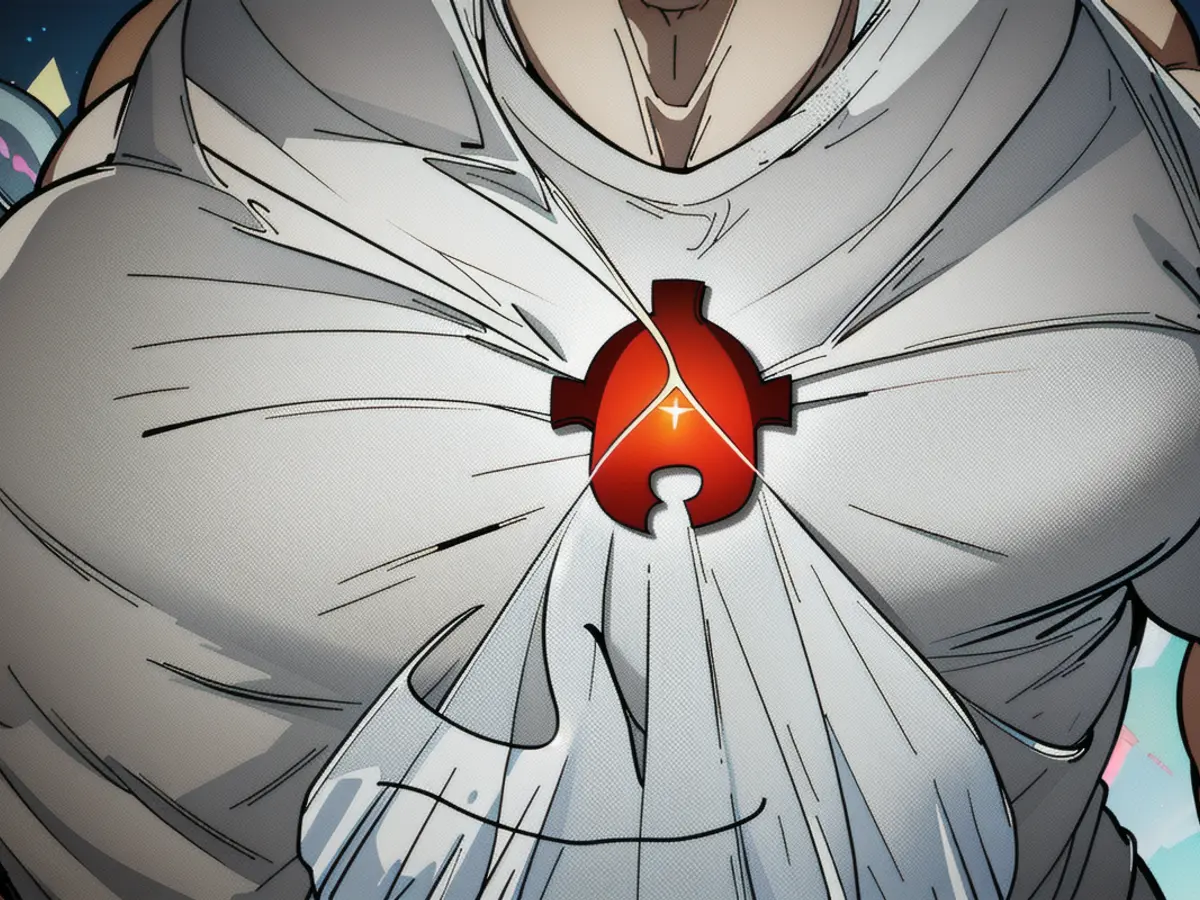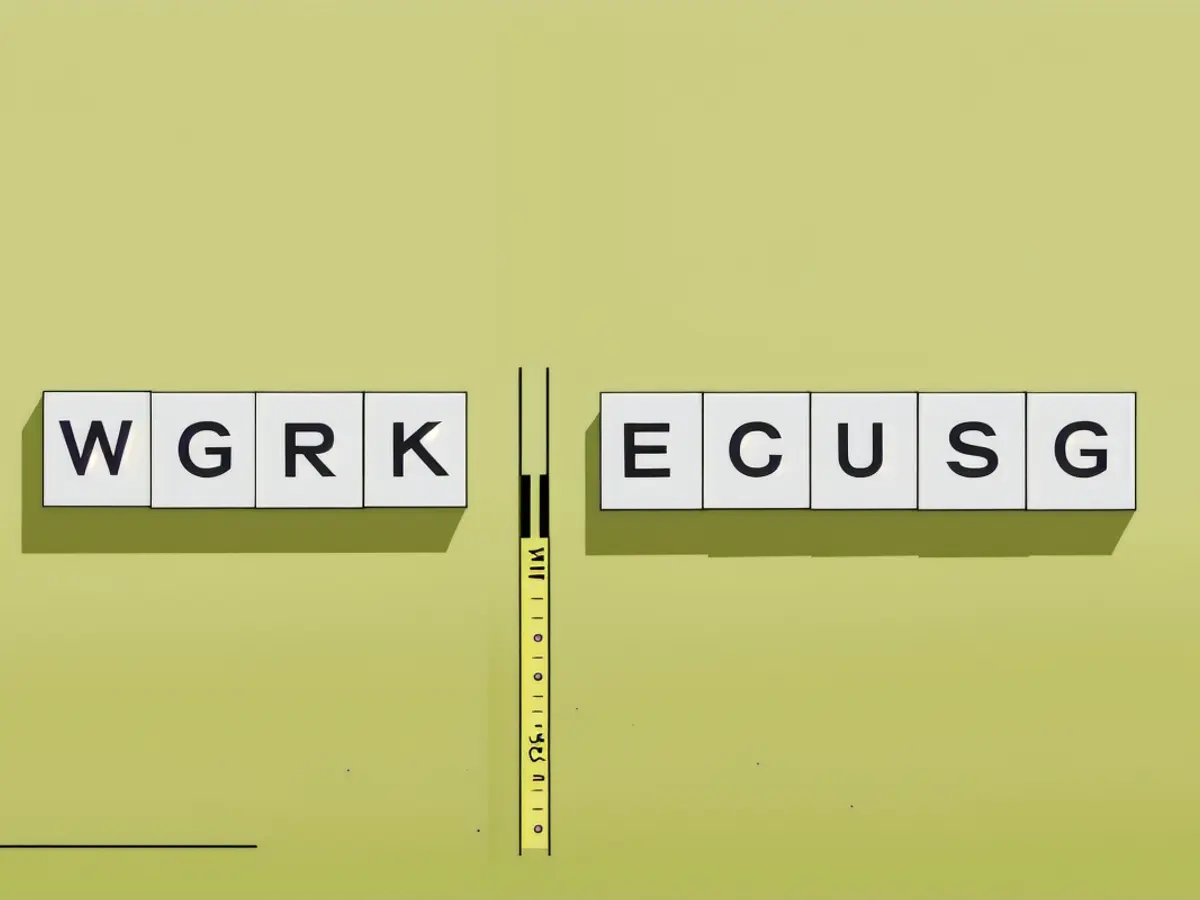MLB's Pursuit of a Cap: The Possible Impact on TV Deals and Bond Ratings, Explained
With just over two years until the current Major League Baseball (MLB) collective bargaining agreement expires, the looming threat of owners seeking a salary cap has turned the baseball world's attention to potential labor disputes. As the MLB sees record-breaking $12.1 billion in gross revenues, some owners advocate for a salary cap, while the MLB Players Association (MLBPA) vehemently opposes it. Commissioner Rob Manfred has expressed concerns about fans in smaller markets struggling to compete with the financial might of giants like the Dodgers, but historically, owners have used lockouts as leverage during negotiations.
At the Owners' Meeting earlier this month, Manfred didn't hide his feelings toward the Dodgers, stating that their operations were "within the rules" and acknowledging that fans' concerns about their team's ability to compete were legitimate. The Dodgers are once again expected to break the luxury tax, projecting a $402.3 million payroll for the new season, a 20% increase from last year's $353 million payroll, resulting in a $103 million tax penalty.
The potential impact of a salary cap on TV deals is significant. ESPN, FOX, and TBS pay MLB $550 million annually. A work stoppage over a cap could lead to these broadcast partners revoking rebates for lost games. Streamers like Amazon and Apple are poised to gain ground but are currently offering lower revenues than their traditional TV partners. The league is already grappling with a "stable" outlook on rates of MLB Trust Notes due to large contractual revenue streams with these media counterparties. A lockout could potentially lead to a downgrade by Fitch.
The Dodgers' financial imbalance has been the center of attention, with Manfred expressing his concern that fans in smaller markets may feel disadvantaged by the Dodgers' financial might. However, owners like David Rubenstein of the Baltimore Orioles support a salary cap, telling Yahoo Finance that it's necessary to keep baseball's values in line with other sports.
Even with the enormous pressure from the owners, the MLBPA is unlikely to give in easily on a salary cap, which they believe would limit players' earning potential. The MLBPA is also cautious of revenue sharing, which they believe would benefit teams like the Dodgers and Yankees at the expense of smaller market teams.
Historically, labor disputes have been a regular occurrence in MLB. The 1994-1995 strike, which lasted 232 days, led to the cancellation of the World Series. The current bargaining agreement expires in December 2026, setting the stage for intense negotiations with potentially significant consequences for the league.
As negotiations enter their critical stage, both the MLB and MLBPA will need to strike a delicate balance. Players and fans alike are watching closely to see if the discussions will result in a lockout or a workable agreement that addresses competitive balance and player compensation.
[1] Drellich, E. (2022, February 8). The MLB owners really want a salary cap – and they're starting to act like it. The Athletic. Retrieved from https://theathletic.com/3535968/2022/02/08/mlb-salary-cap-collective-bargaining-agreement-manfred-rob-MLB-PA/
[2] Green, M. (2022, February 8). The MLB owners want a salary cap. The problem: There's no clear way to get it done. ESPN. Retrieved from https://www.espn.com/mlb/story/_/id/35265433/mlb-owners-push-salary-cap-collective-bargaining-agreement
[3] Rapoport, J. (2022, February 8). MLB Players Union hopes Rob Manfred 'cries uncle' over salary cap, but it's far from certain. Yahoo Sports. Retrieved from https://sports.yahoo.com/mlb-players-union-hopes-rob-174700198.html
[4] Drellich, E. (2022, February 8). Who wins and loses in the WAR for MLB's rising superstars? The Athletic. Retrieved from https://theathletic.com/3535965/2022/02/08/war-for-mets-acuna-oscars-suarez-marlins-fans-stand-with-rich-hill-wins/
[5] Doing Baseball Right: The Athletic’s MLB fantasy baseball rankings and projections. The Athletic. Retrieved from https://theathletic.com/3694594/2022/02/03/2022-fantasy-baseball-rankings-projections-position/
[6] MLB salary cap: What the numbers say about the owners' push to limit player spending. CBS Sports. Retrieved from https://www.cbssports.com/mlb/news/mlb-salary-cap-what-the-numbers-say-about-the-owners-push-to-limit-player-spending/
[7] Long-term, Fitch-rated notes include 155.7m trust notes issued in 2021. Businesswire. Retrieved from https://www.businesswire.com/news/home/20210902005927/en/MLB-Announces-Terms-of-MLB-Trust--Series-68--and--69--Senior-Secured-Notes
[8] Walters, E. (2017, October 23). Why MLB’s competing theories of competitive balance are flawed. The Ringer. Retrieved from https://www.theringer.com/mlb/2017/10/23/16244514/mlb-salary-cap-competitive-balance-analysis
- The MLB Players Association (MLBPA), led by Tony Clark, has strongly opposed the idea of a salary cap proposed by some MLB owners.
- Rob Manfred, the commissioner of MLB, has stated that fans in smaller markets are being disadvantaged by the financial might of teams like the Dodgers, increasing the likelihood of MLB work stoppages.
- In a predicted scenario of an MLB lockout due to a salary cap, MLB revenues from television deals with ESPN, FOX, and TBS could be affected since these broadcast partners might revoke rebates for lost games.
- This potential impact on TV deals could significantly affect MLB revenues, potentially leading to a downgrade by Fitch in the league's credit rating.
- Despite the pressure from owners like David Rubenstein, the MLBPA is unlikely to give in easily on a salary cap, believing that it would limit players' earning potential and disadvantage small market teams.
- If MLB loses games due to a lockout, it could result in a loss of leverage for both parties, potentially leading to an agreement that addresses competitive balance and player compensation.
- In the 2028 season, with the current collective bargaining agreement set to expire, the MLB and MLBPA could be facing another occurrence of labor disputes, similar to the 1994-1995 strike that led to the cancelation of the World Series.







